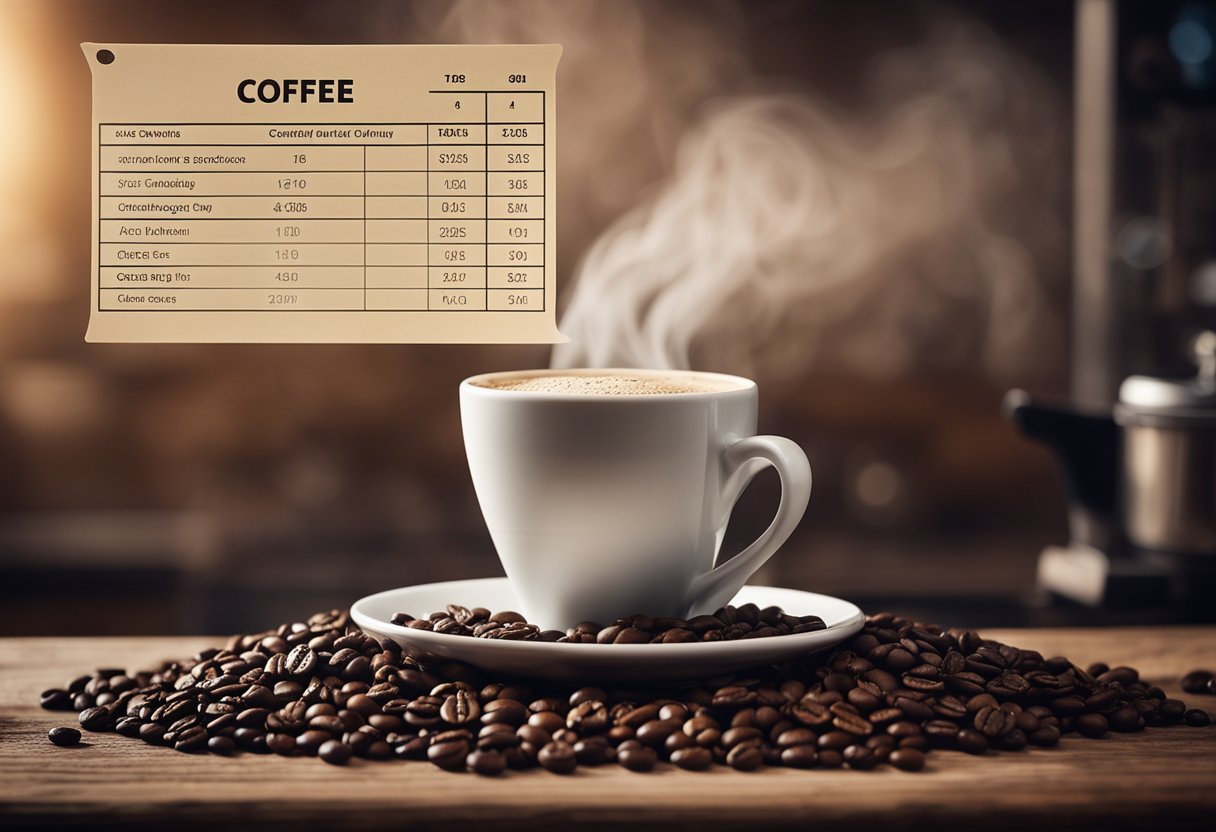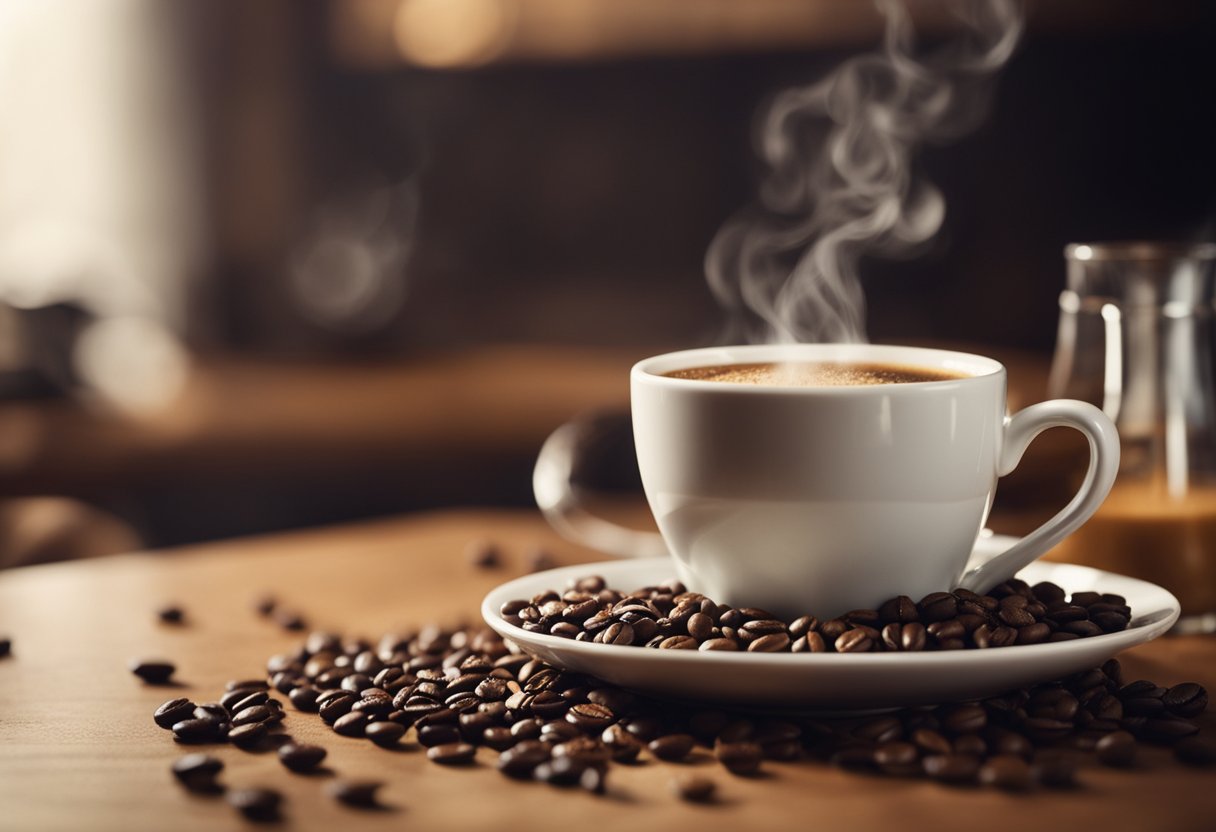Caffeine is arguably the most popular natural stimulant in the world, and coffee is its most common delivery system. A cup of coffee doesn’t just kick-start the morning for millions; it’s a comforting ritual and a taste sensation. However, the caffeine content in a cup of coffee can be quite puzzling, as it varies widely depending on several factors. Understanding how much caffeine is in your coffee is important for managing consumption, particularly since health professionals suggest that adults should limit their intake to keep it within safe levels.

The average cup of coffee offers about 95 mg of caffeine, but this amount is far from constant. It can be influenced by the type of coffee bean, the method of brewing, and even the size of the coffee cup. While some people can tolerate multiple cups daily without any adverse effects, others may find that even a single cup is too stimulating.
Whether one is trying to manage caffeine intake for health reasons or is simply curious about the content in their daily brew, knowledge about caffeine levels can help. Coffee aficionados can make informed choices by learning about different brews’ caffeine strengths, from a robust espresso to a milder latte.
Understanding Caffeine in Coffee

Coffee is a complex beverage with varying caffeine levels depending on the type and preparation method. This section explores the basics of caffeine, its health implications, and how it compares in different coffee and tea beverages.
Caffeine Basics and Coffee Types
Caffeine is a natural stimulant most commonly found in tea, coffee, and cacao plants. It works by stimulating the brain and central nervous system, helping to stay alert and prevent the onset of tiredness. When discussing coffee types, the two most popular varieties of coffee beans are Arabica and Robusta. Arabica beans tend to have a sweeter, softer taste, while Robusta beans are stronger and more bitter. The caffeine content in coffee can vary significantly, with Robusta coffee beans generally containing almost double the caffeine of Arabica beans.
Bean Types and Caffeine Content:
- Arabica: Generally contains less caffeine.
- Robusta: Has a higher concentration of caffeine.
Health Implications of Caffeine
Moderate caffeine consumption can be a part of a healthy diet for most adults, but excessive intake may lead to restlessness, anxiety, headaches, and complications, including increased risk of heart conditions. The FDA recommends a maximum of 400 milligrams of caffeine per day for healthy adults, equating to around four or five cups of coffee. However, pregnant women, breastfeeding mothers, and individuals with sensitivity to caffeine should consume much less.
Caffeine Health Guidelines:
- Healthy adults: Up to 400 mg/day, about four 8 oz cups of brewed coffee.
- Pregnant women: No more than 200 mg/day.
Caffeine Comparison in Popular Beverages
The amount of caffeine in a cup of coffee can vary greatly depending on the brewing method and serving size. For instance, a shot of espresso contains about 63 mg of caffeine, while an 8 oz serving of home-brewed coffee can range from 80 to 135 mg. In contrast, a 12 oz can of cola typically contains 30 to 40 mg, and an 8 oz serving of green tea around 28-45 mg of caffeine. Decaf coffee, while not entirely caffeine-free, presents a lesser amount, generally having 2 to 15 mg per 8 oz cup.
Caffeine Content Per Serving:
- Espresso (1 oz): ~63 mg
- Brewed Coffee (8 oz): 80-135 mg
- Decaf Coffee (8 oz): 2-15 mg
- Green Tea (8 oz): 28-45 mg
- Cola (12 oz): 30-40 mg
By understanding these variations, consumers can make informed choices to match their personal caffeine intake preferences or dietary needs.
Frequently Asked Questions
This section explores common inquiries about caffeine levels in various coffee preparations and offers insights into what constitutes a safe caffeine intake.
How many milligrams of caffeine are found in a typical cup of brewed coffee?
A typical 8-oz cup of brewed coffee contains approximately 80-100 mg of caffeine, varying with the coffee’s strength and bean variety. For more detailed information, Healthline provides a detailed guide on caffeine content in coffee.
What is the caffeine content of a standard espresso shot?
A standard single espresso shot typically has about 63 mg of caffeine, although the exact amount can depend on the coffee bean and the fineness of the grind. Details can be seen on the Medical News Today caffeine content page.
Can you tell me if a 200 milligram caffeine intake is considered excessive?
An intake of 200 mg of caffeine is not generally considered excessive. It’s equivalent to roughly two 8-oz cups of brewed coffee, which is within what many health experts consider moderate.
What is the maximum amount of caffeine that is safe to consume daily?
For most healthy adults, up to 400 mg of caffeine per day is deemed safe. This is roughly the amount of caffeine in four 8-oz cups of brewed coffee. The Mayo Clinic highlights the caffeine content in various beverages, which can be handy to track intake.
How does the caffeine content in coffee compare with that in tea?
The caffeine content in coffee is generally higher compared to tea. An 8-oz cup of coffee typically offers 80-100 mg, whereas the same volume of black tea provides about 40-70 mg, and green tea about 20-45 mg. OXO talks about the caffeine levels in a Coffee Facts article.
What’s the amount of caffeine found in a standard Starbucks coffee drink?
Caffeine content in Starbucks coffee drinks can vary greatly. For example, a grande Starbucks Blonde Roast contains around 360 mg of caffeine. The OXO blog provides further insights into Starbucks coffee caffeine levels.